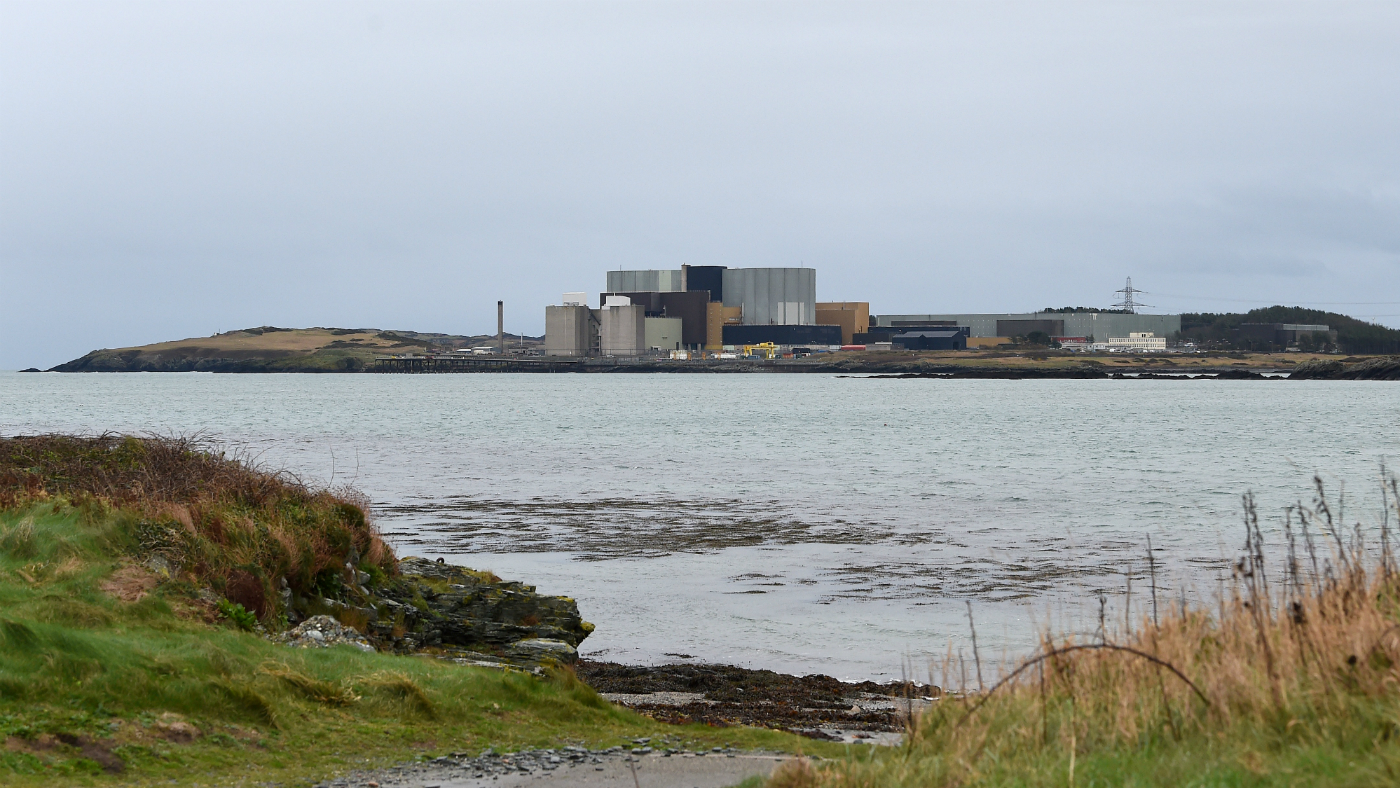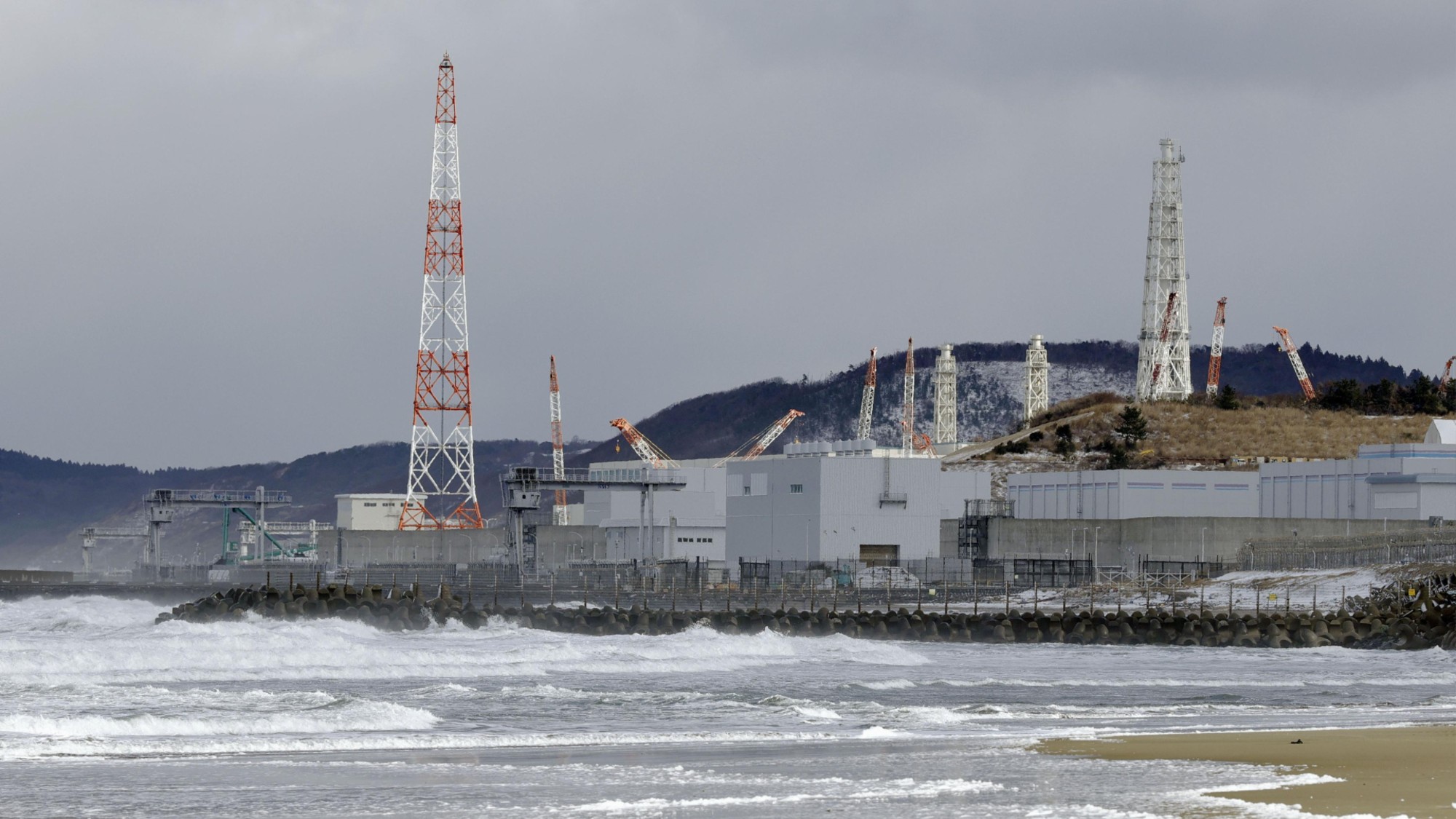Can the UK decarbonise without nuclear power?
Cancellation of Hitachi nuclear plant in Wales threatens to derail Downing Street’s plans for eliminating CO2

A free daily email with the biggest news stories of the day – and the best features from TheWeek.com
You are now subscribed
Your newsletter sign-up was successful
The UK’s bid to achieve “net zero” carbon emissions by 2050 has been dealt a staggering blow by the axing of plans to built a new nuclear power station on the Welsh island of Anglesey.
Japanese technology firm Hitachi confirmed today that the £16bn Wylfa Newydd plant, which would have provided around 6% of Britain’s electricity, was being scrapped for good, 20 months after the project was suspended as a result of funding problems.
Justin Bowden of the GMB union said the “utterly predictable announcement” was a disastrous development as “new nuclear is vital in achieving decarbonisation”.
The Week
Escape your echo chamber. Get the facts behind the news, plus analysis from multiple perspectives.

Sign up for The Week's Free Newsletters
From our morning news briefing to a weekly Good News Newsletter, get the best of The Week delivered directly to your inbox.
From our morning news briefing to a weekly Good News Newsletter, get the best of The Week delivered directly to your inbox.
What is decarbonisation?
Decarbonisation refers to removing or reducing the amount of carbon dioxide (CO2) emitted by a country’s industries and other practices, with the ultimate aim of eliminating these emissions entirely in order to reduce the greenhouse effects that contributes to global warming.
Electric power generation company Drax says that currently, a “wide range of sectors - industrial, residential and transport - run largely on fossil fuels, which means that their energy comes from the combustion of fuels like coal, oil or gas”. But by using alternative sources of energy, the amount of CO2 emitted into the atmosphere can be reduced, helping to slow the effects of climate change.
In 2008, the government of Gordon Brown passed the UK Climate Change Act, which included a legally binding target to cut greenhouse gas emissions to 80% below 1990 levels by 2050. The act was amended last year to set the tougher goal of reaching “net zero” by 2050.
A free daily email with the biggest news stories of the day – and the best features from TheWeek.com
As the London School of Economics (LSE) explains, this new goal means that “any residual emissions will need to be balanced with removal or offsetting measures so that emissions are zero overall”.
Are we on the right track?
Achieving the decarbonisation pledge poses an enormous challenge.
A study by PricewaterhouseCoopers (PwC) in late 2019 found that the UK was leading the G20 nations in having the most rapid decarbonisation rate since 2000, at 3.7%.
But the accounting giant calculated that this rate needed to be accelerated to 9.7% per year to reach net zero by 2050.
According to Energy Live News, experts said such an acceleration would “require every sector of the UK economy to undergo significant change”, with “the electrification of transport and heating to be met by scaling up of renewables and increasing investment in clean energy sources, advanced storage solutions and smart grids”.
Can the 2050 targets be hit without nuclear power?
The cancellation of the Wylfa Newydd nuclear project is a big stumbling block in the path to net zero. Just last month, as Hitachi stepped up talks with the government over funding, politicians hailed the project as a major step toward achieving the aims laid out in the Climate Change Act.
Ynys Mon’s Conservative MP Virginia Crosbie said that “nuclear power will be critical to the UK Government achieving its carbon-neutral target by 2050 and Wylfa Newydd would make an important contribution to this commitment”.
World Nuclear News reports that nuclear power “currently produces about 10% of the world’s electricity, but contributes one-third of all low-carbon electricity”, while avoiding “the emission of some two gigatonnes of carbon dioxide annually”.
And although “renewables such as wind and solar power are growing in importance”, these are “intermittent energy sources which cannot meet countries’ needs on their own”, according to International Atomic Energy Agency director general Rafael Mariano Grossi.
“That means more use of nuclear power will be needed,” he told a UN climate summit in December.
Bret Kugelmass, founder of the Washington D.C.-based Energy Impact Center, told Choose Energy in July that “eliminating annual emissions” is “likely impossible without nuclear, and would require incredible unforeseen leaps forward in a range of other technologies”.
But with Hitachi now pulling the plugs on the plant in Wales, Downing Street may need to come up with alternative options.
-
 Gisèle Pelicot’s ‘extraordinarily courageous’ memoir is a ‘compelling’ read
Gisèle Pelicot’s ‘extraordinarily courageous’ memoir is a ‘compelling’ readIn the Spotlight A Hymn to Life is a ‘riveting’ account of Pelicot’s ordeal and a ‘rousing feminist manifesto’
-
 The EU’s war on fast fashion
The EU’s war on fast fashionIn the Spotlight Bloc launches investigation into Shein over sale of weapons and ‘childlike’ sex dolls, alongside efforts to tax e-commerce giants and combat textile waste
-
 How to Get to Heaven from Belfast: a ‘highly entertaining ride’
How to Get to Heaven from Belfast: a ‘highly entertaining ride’The Week Recommends Mystery-comedy from the creator of Derry Girls should be ‘your new binge-watch’
-
 The plan to wall off the ‘Doomsday’ glacier
The plan to wall off the ‘Doomsday’ glacierUnder the Radar Massive barrier could ‘slow the rate of ice loss’ from Thwaites Glacier, whose total collapse would have devastating consequences
-
 Can the UK take any more rain?
Can the UK take any more rain?Today’s Big Question An Atlantic jet stream is ‘stuck’ over British skies, leading to ‘biblical’ downpours and more than 40 consecutive days of rain in some areas
-
 As temperatures rise, US incomes fall
As temperatures rise, US incomes fallUnder the radar Elevated temperatures are capable of affecting the entire economy
-
 The world is entering an ‘era of water bankruptcy’
The world is entering an ‘era of water bankruptcy’The explainer Water might soon be more valuable than gold
-
 Fifteen years after Fukushima, is Japan right to restart its reactors?
Fifteen years after Fukushima, is Japan right to restart its reactors?Today’s Big Question Balancing safety fears against energy needs
-
 Climate change could lead to a reptile ‘sexpocalypse’
Climate change could lead to a reptile ‘sexpocalypse’Under the radar The gender gap has hit the animal kingdom
-
 The former largest iceberg is turning blue. It’s a bad sign.
The former largest iceberg is turning blue. It’s a bad sign.Under the radar It is quickly melting away
-
 How drones detected a deadly threat to Arctic whales
How drones detected a deadly threat to Arctic whalesUnder the radar Monitoring the sea in the air